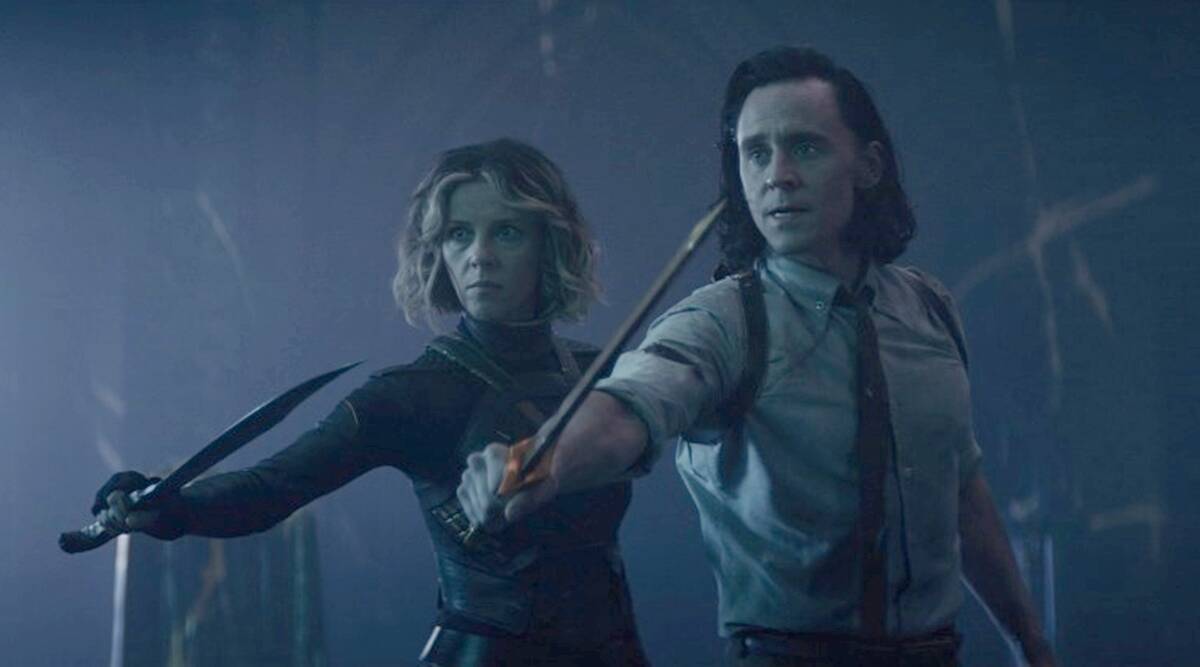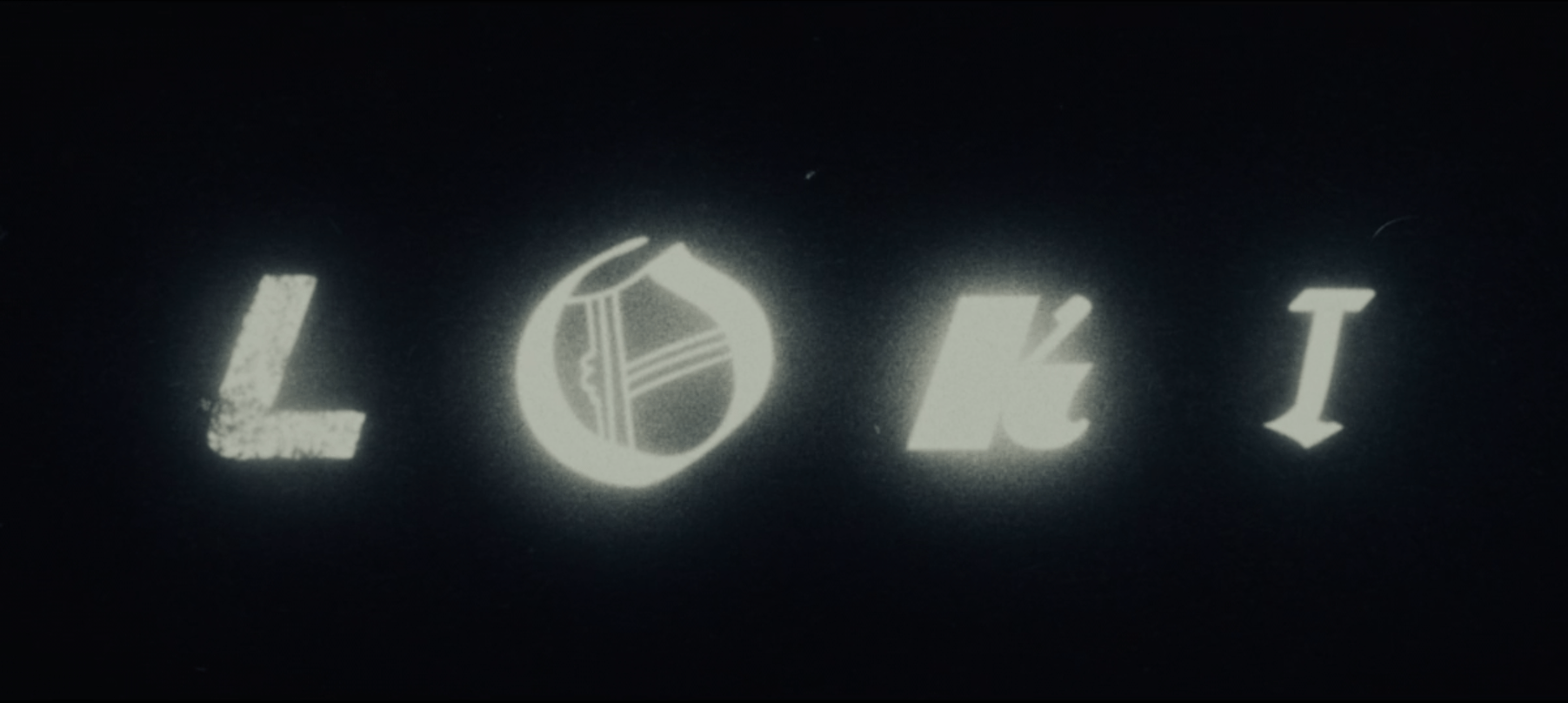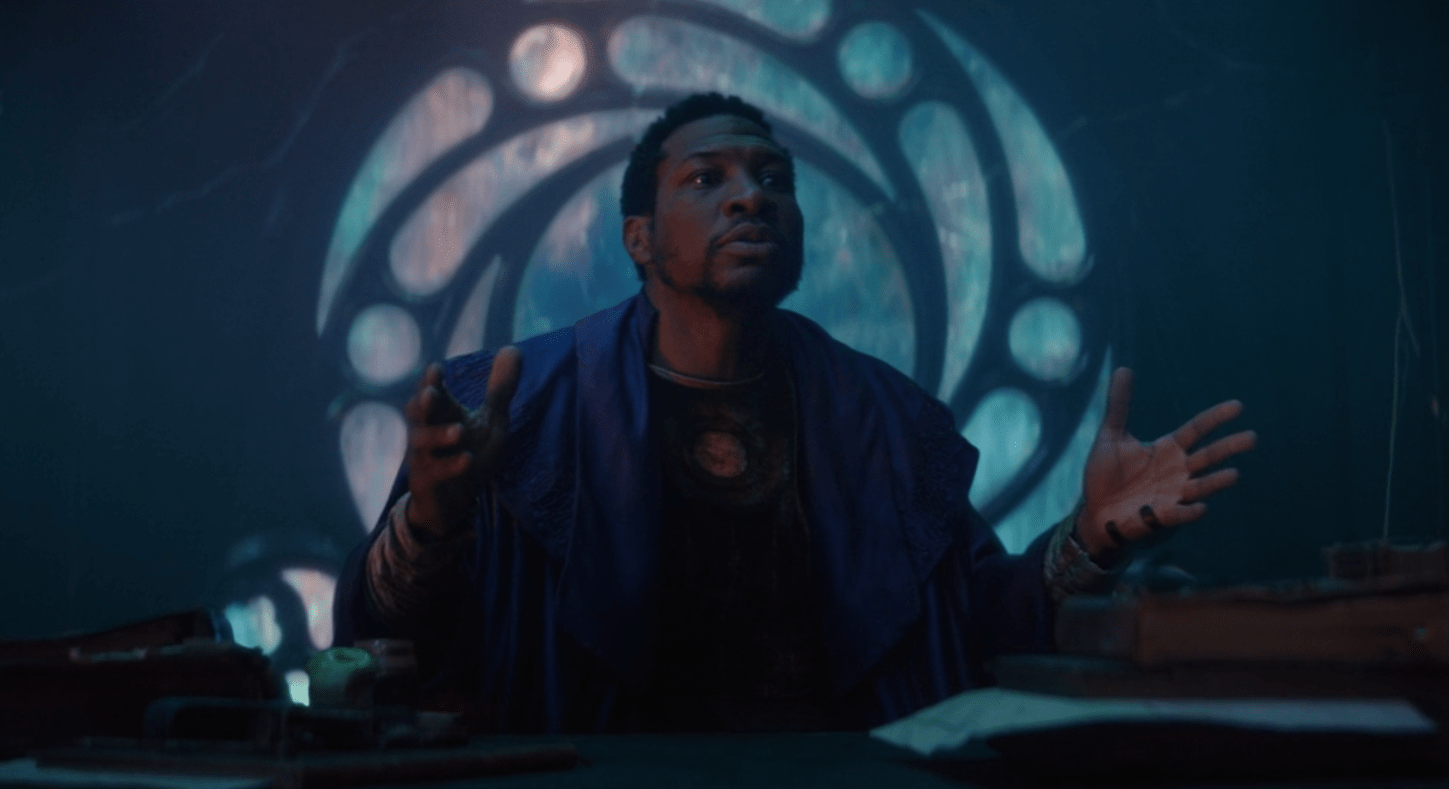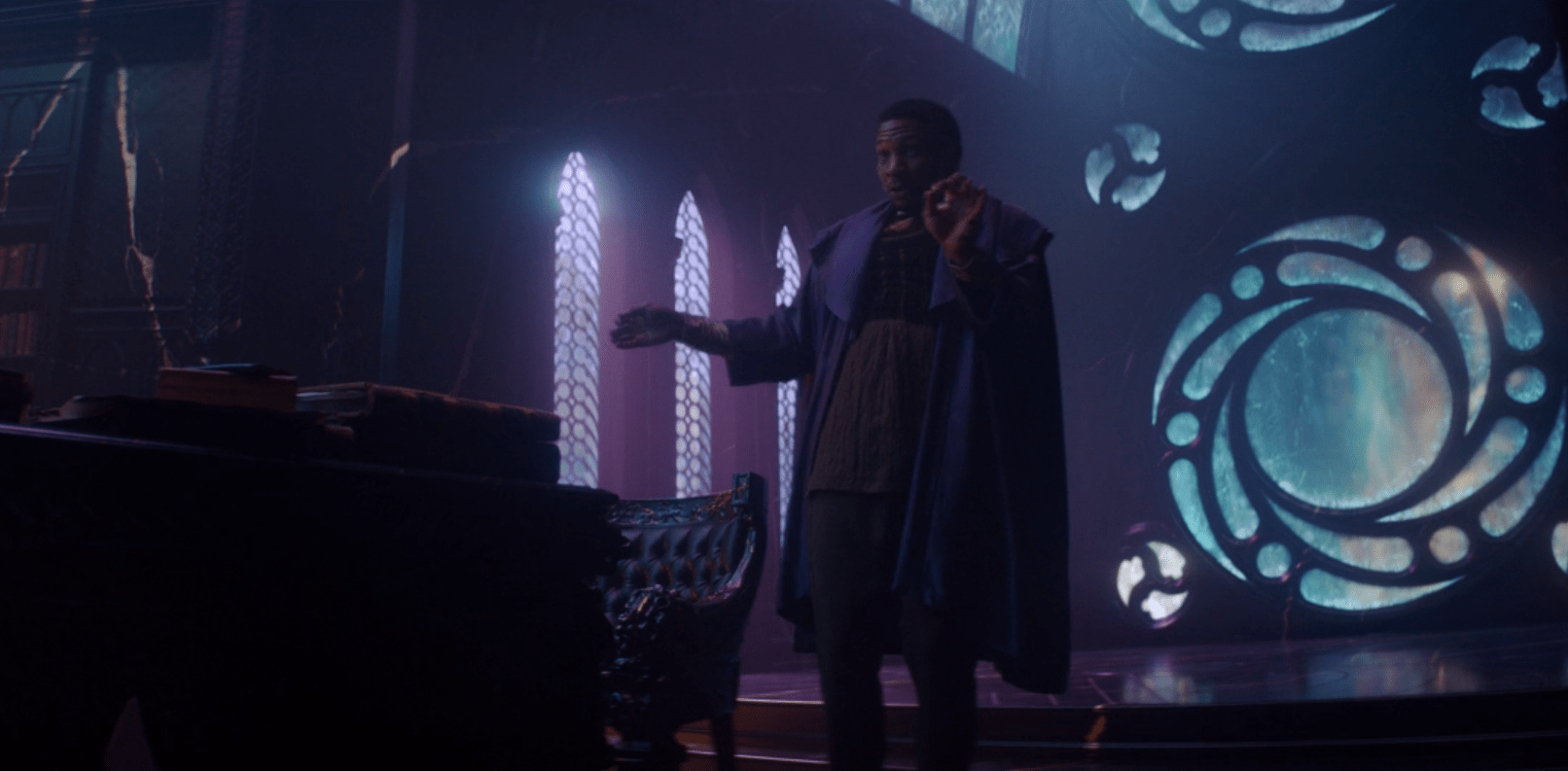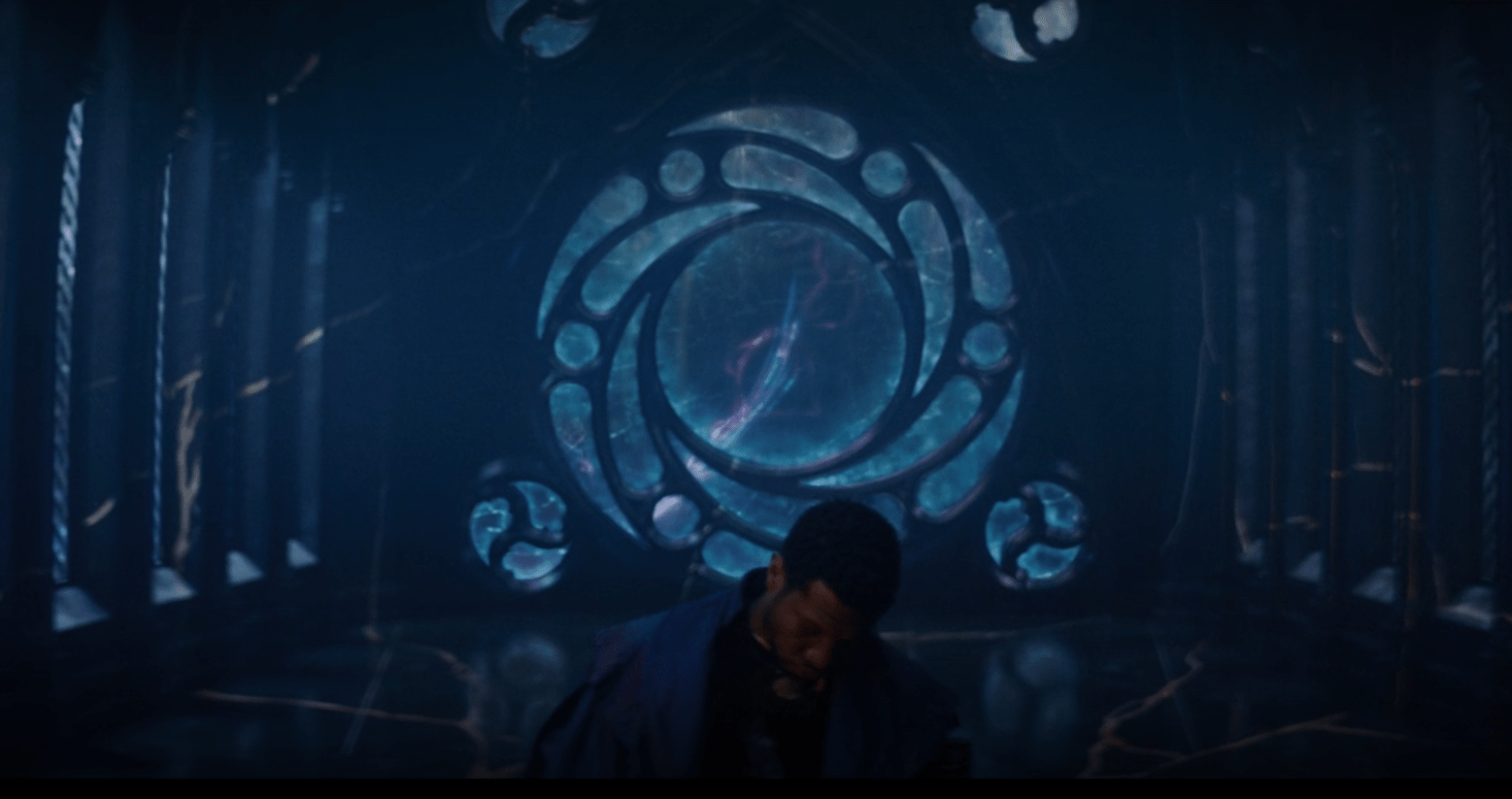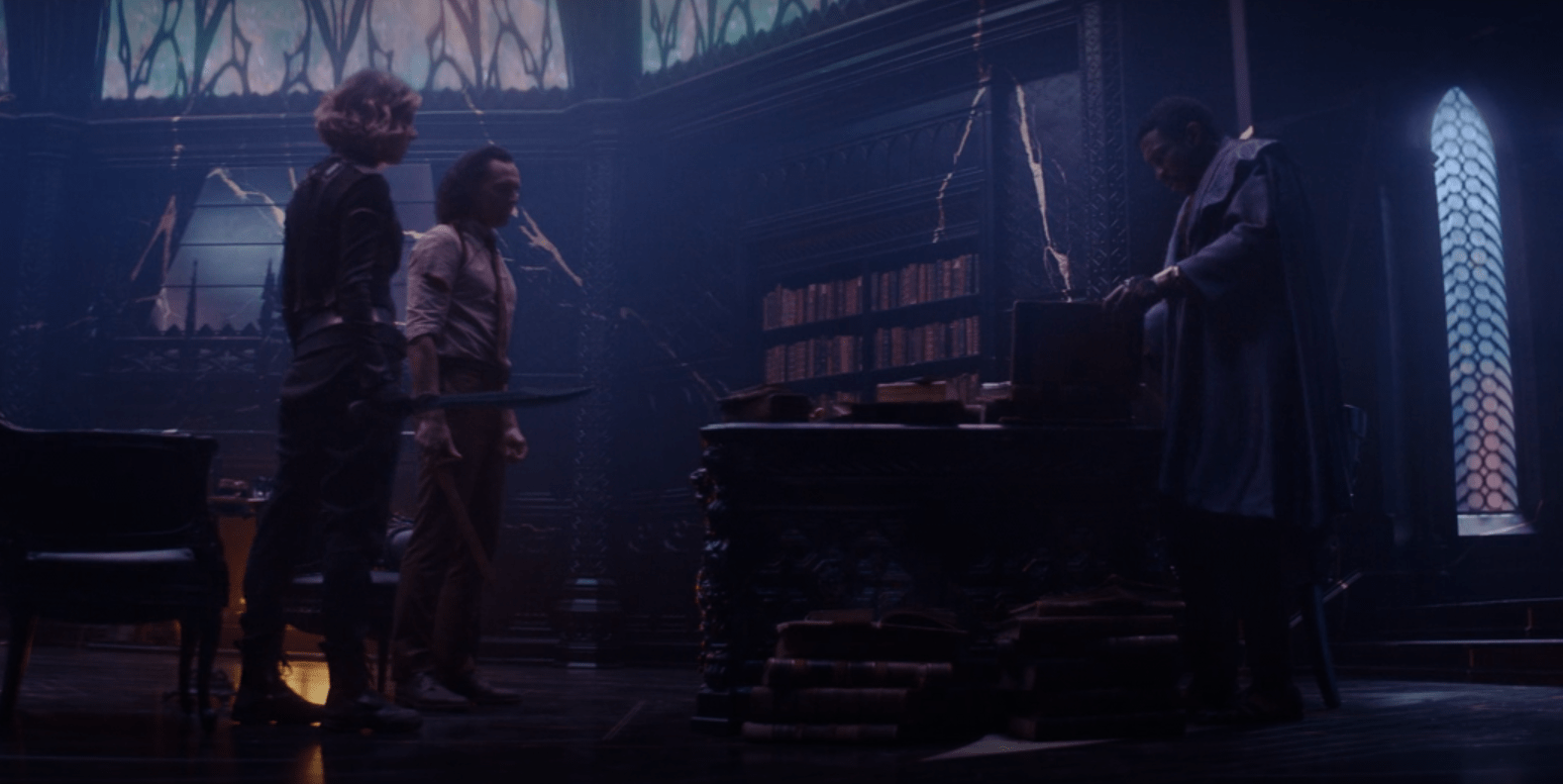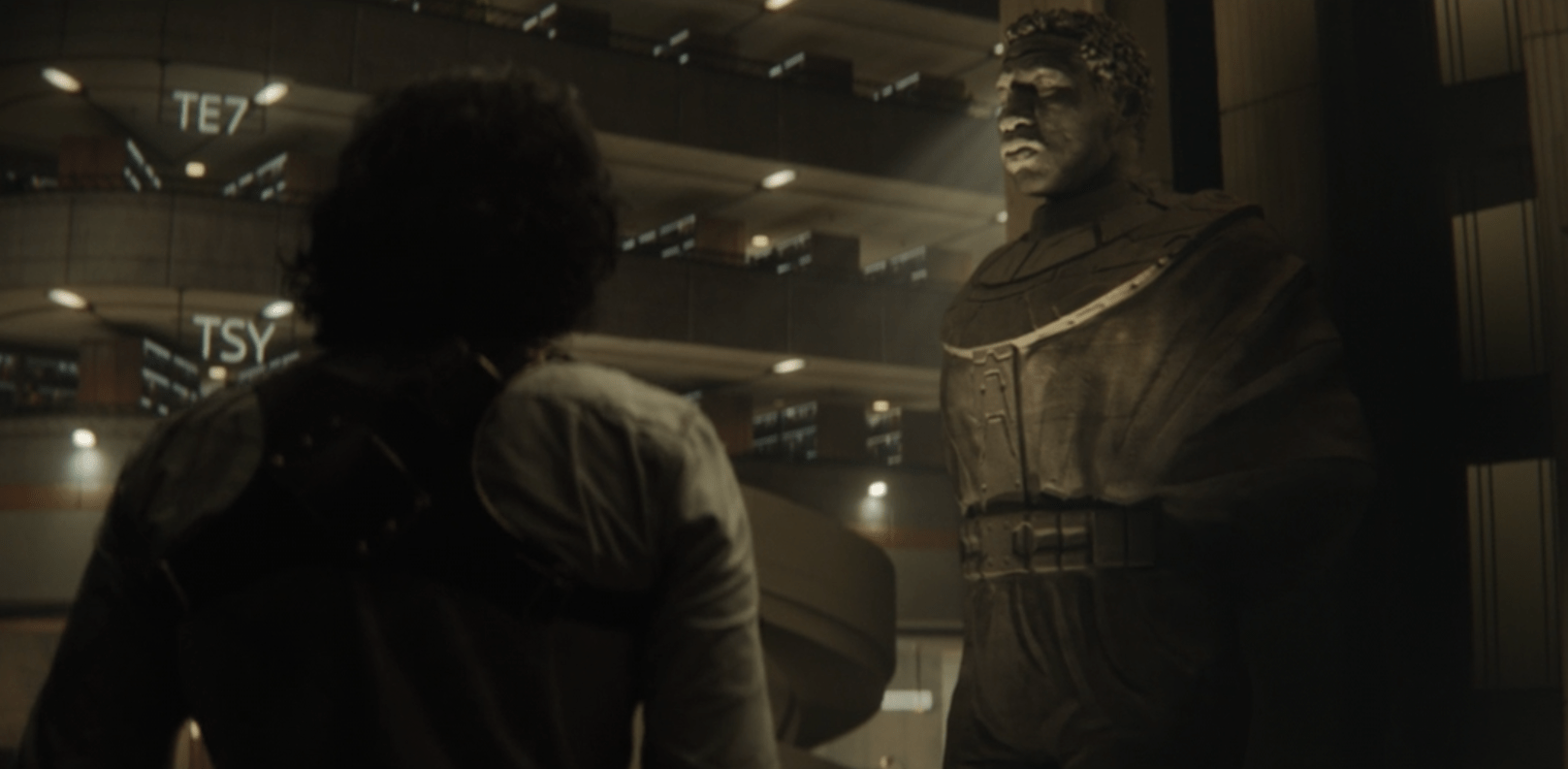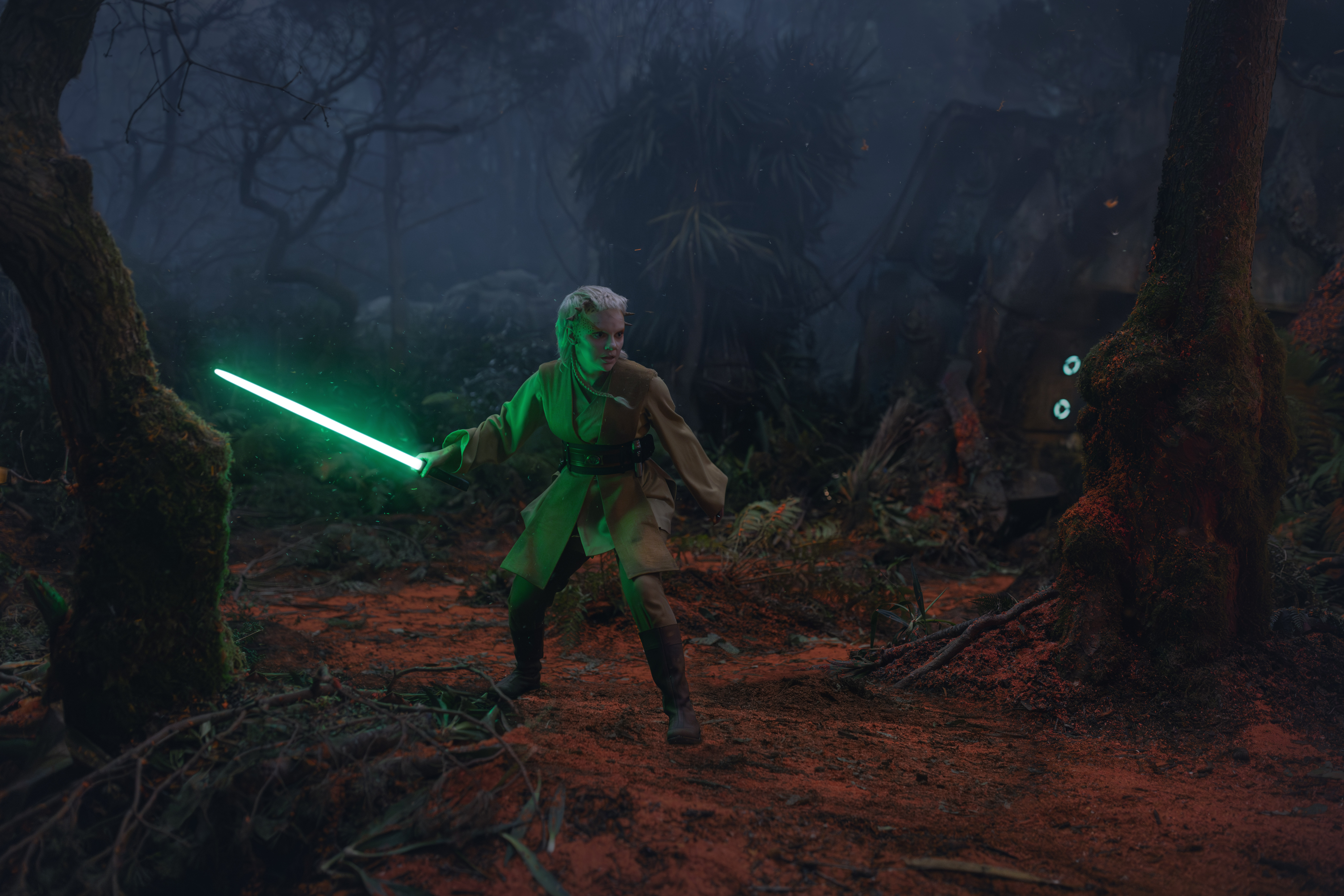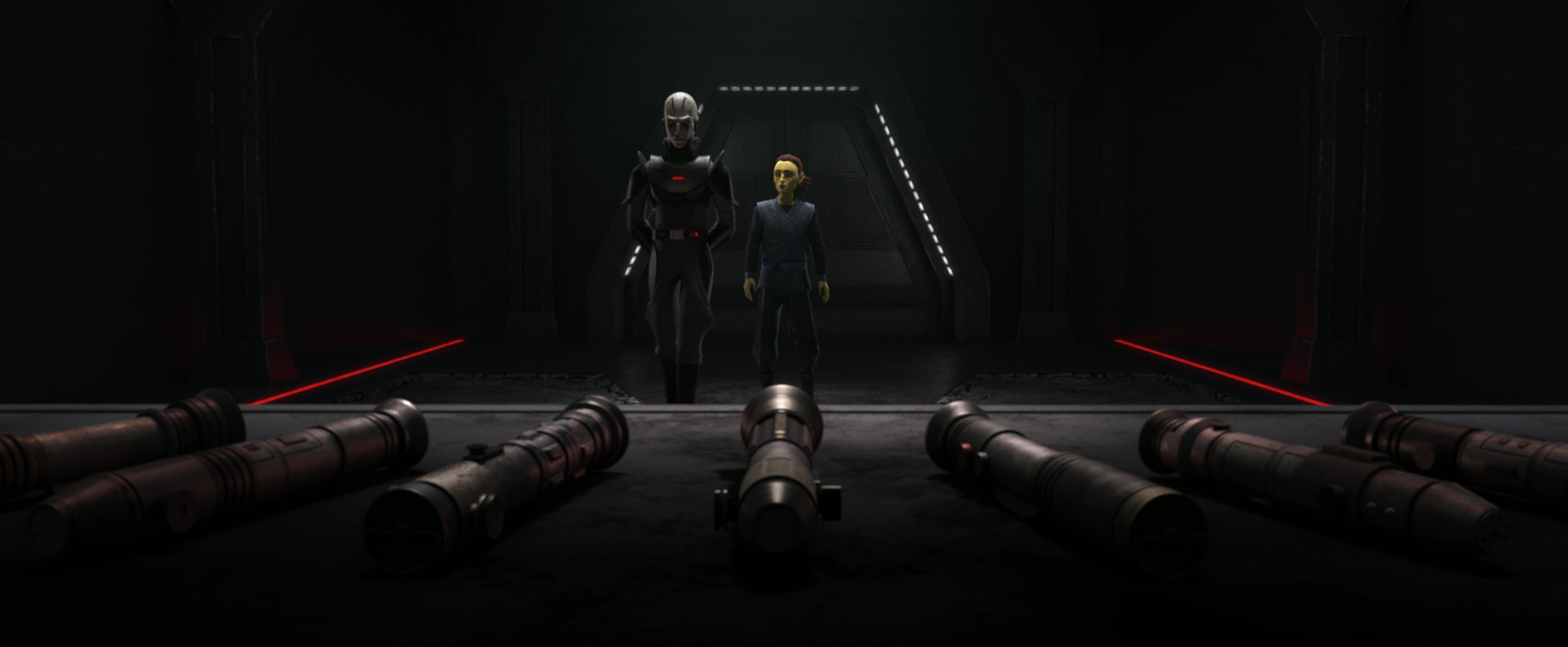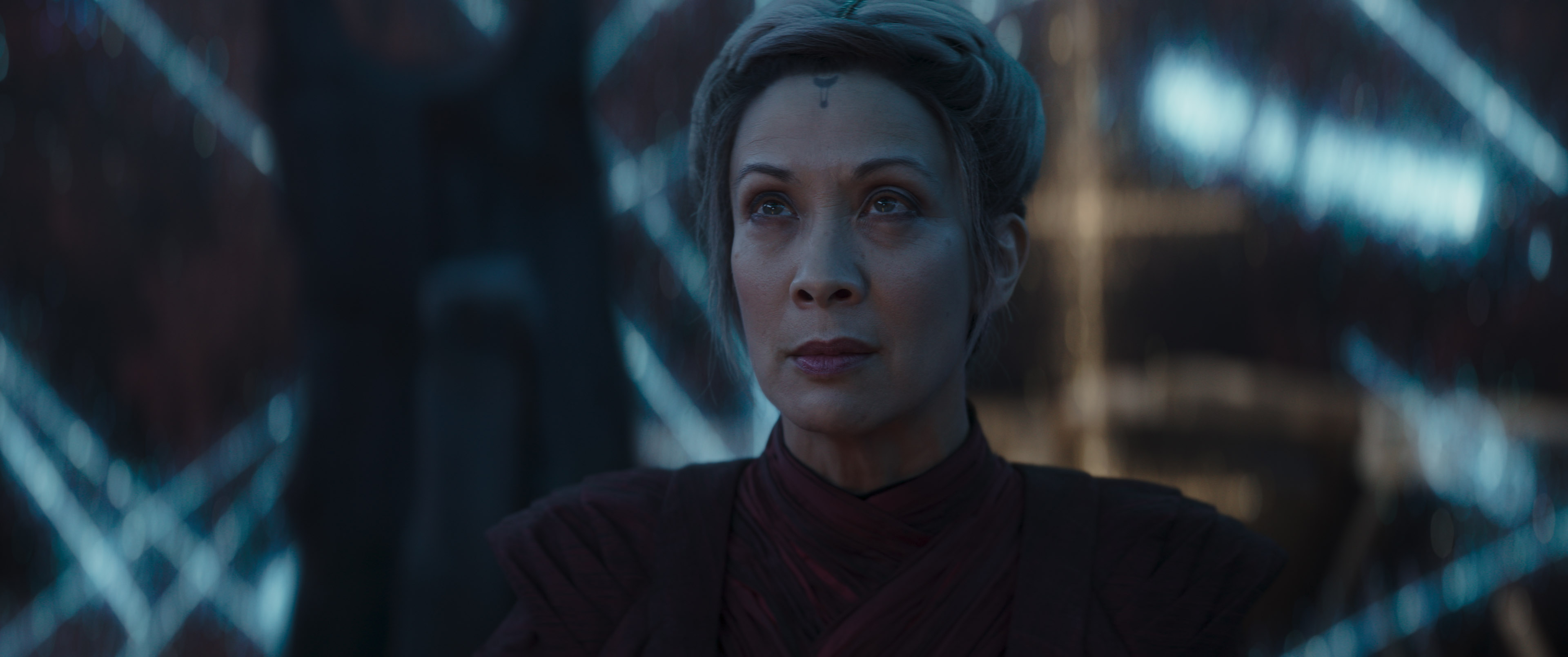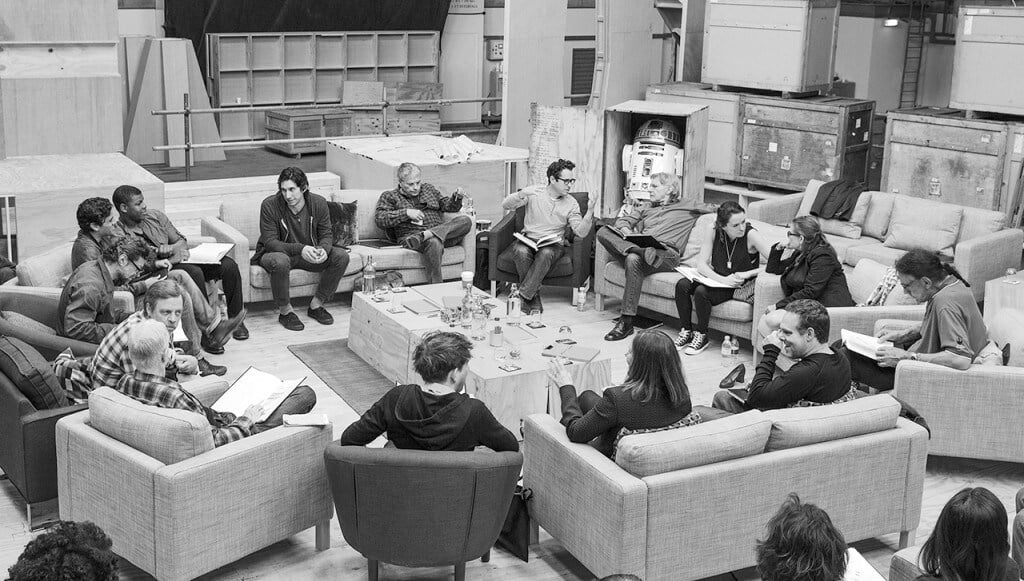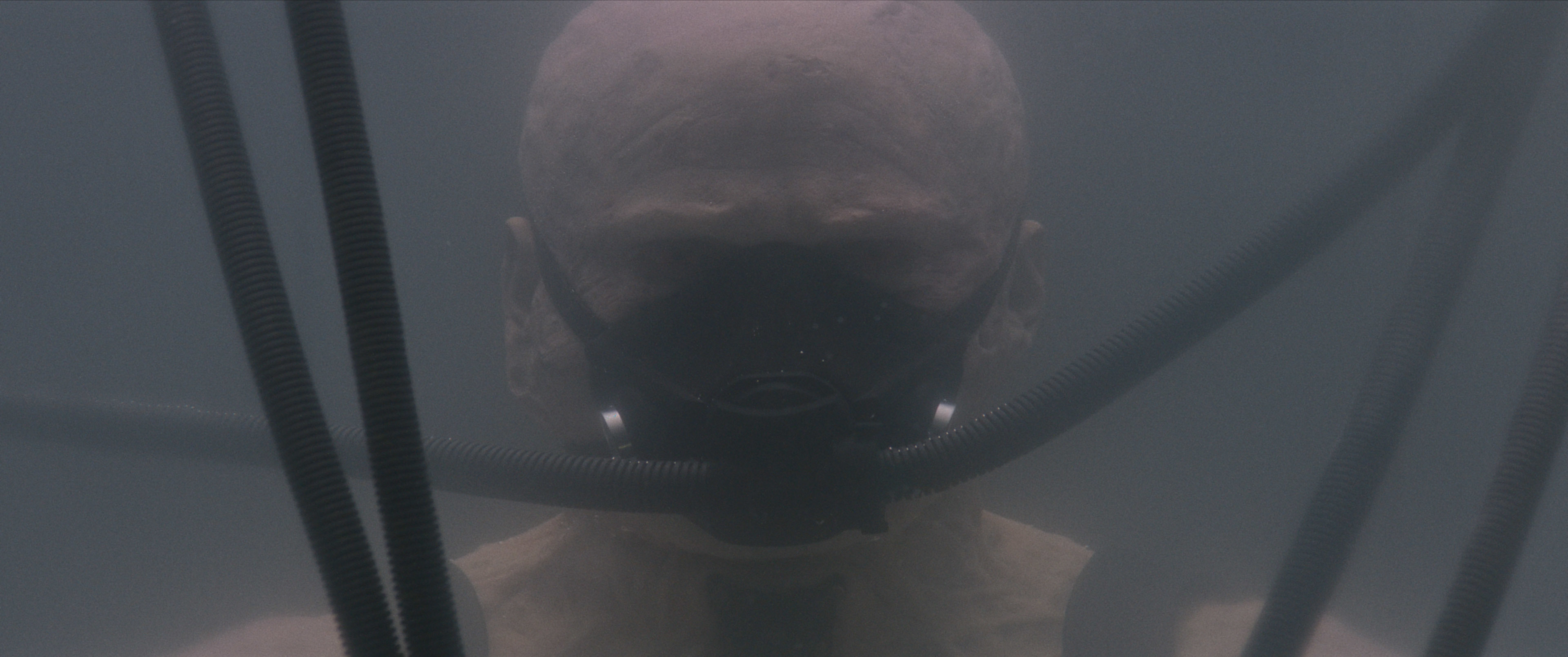‘Loki’ Episode 6 Review — ‘For All Time. Always.’
The grand finale of the first season of Loki is finally here, and we have… thoughts? Questions?
For All Time. Always. was directed by Kate Herron and written by Michael Waldron and Eric Martin. It is the big payoff of everything that went down in the last episode, and the season as a whole too. Loki and Sylvie take the front seat, while the rest of the TVA have much less relevant roles. There’s really no way to discuss this episode that is not spoiler-filled, so I’m just gonna get into it.
Major spoilers ahead.
The episode begins with a clear homage to 1995’s Contact, which followed up the Marvel logo playing with not the usual fanfare, but rather different sound clips from various movies and shows, threaded by It’s Been a Long Time, the song that puts tears in my eyes every time it shows up at the end of Avengers: Endgame.
Let’s just address the big elephant in the room. The big question this season of Loki has been who is the man behind the curtain, the person/being pulling the strings. As many speculated, it is indeed Jonathan Majors’ Kang the Conqueror… sort of? Majors shows up in a very unceremonious way to confront both Loki variants in the castle where he apparently lives and proceeds to explain everything that has been going on in the series from his point of view. He tells them that he’s been planning for the two of them to knock on his door since the beginning, and he presents them a choice: they can either kill him and unleash chaos all over the multiverse, or they can be the CEOs of the TVA from now on. The Lokis have disparate opinions.
We’ve known for almost a year that Jonathan Majors is playing Kang in the upcoming Ant-Man and the Wasp: Quantumania, which is shooting right now. Despite that, he never acknowledges that name or any name at all. He does namedrop “The Conqueror,” but doesn’t go further than that. The history of the multiple versions of this character in the comics is very confusing, which was directly translated onto the screen in this episode. A possibility is that Majors was playing Nathaniel Richards, who is basically the good version of the villain Kang, the same guy from another timeline. We’ll refer to Majors’ character from now on as “the good Kang,” for lack of a better name (or any name at all). One interesting detail I found when the Lokis appear in the castle is that there are some broken statues, which was certainly unexpected for a pseudo-God of Time living by himself at the end of all that ever was.
I will say that, even though I acknowledge that many people will not be fans of Majors’ performance here, and even though I’m not that familiar with the character of Kang besides some general knowledge, I was glued to the screen every time he talked. So yes, I was a big fan of his performance. I know it’s not the classic Kang, but neither was his character, as I understand, so it’s very likely his performance will change as he portrays the more evil Kang.
The good Kang explains that he somehow managed to come out victorious in a multiversal war between all versions of Kang. When he did that, he managed to take over his timeline, which he then named the Sacred Timeline, and created the TVA to guarantee that it remained that way. When Sylvie kills the good Kang by the end, all hell breaks loose, and a Multiverse of Madness is created. We assume that, in one of these new multiverses, the villain Kang, who will be addressed by that name, is going to appear.
An interesting point to be raised here is that this could mean that Doctor Strange in the Multiverse of Madness is not going to close up the “multiverse problem” we thought the MCU had and now (definitely and more than ever) has. And that is because Kang is showing up in Ant-Man 3. This could very well mean that we are now looking at the next big bad for the MCU after Thanos, which is something many have been speculating for a long time. If that’s the case, I wonder if the Fantastic Four will be the key to solving this problem. The “Marvel Studios Celebrates the Movies” from early May certainly teased that the Fantastic Four movie that was announced back in December could be the endgame of the story, although that may just be a loose interpretation of an editing choice in a marketing video.
Going back to the episode, I have to say, I’m not sure how to grade it. The main problem with the episode is that it failed to act as a season finale, but was rather a setup for everything that is to come next for the MCU. It is very hard to review it that way. That being said, I will declare this: I definitely think that they failed to successfully explain everything that is going on. I understand that they are very complex ideas, but if I need to rewatch the episode a couple of times and have several conversations with people that know the comics to fully grasp the idea that the good Kang wanted to convey, there is a writing problem here.
I hope that they will fix that for Doctor Strange 2, and I think they will — the shows seem to be for the more nerdy audiences, and the movies are tailored for the casual audiences. There is a precedent for this — they purposefully reshot the scene between Banner and the Ancient One in Endgame because they thought the first version was very confusing. And props for that, because the final version of the scene was much more comprehensible (the deleted one can be found on Disney Plus).
This episode, however, recontextualized the entire Loki series within the MCU. So far, all Marvel Studios movies have felt like their own thing (except for Endgame for obvious reasons) in that they have a beginning, a middle, and a definitive end. Infinity War can be both interpreted as the first part of a two-movie arc, or a movie with a definitive ending where the bad guy wins. It does have a sequel, but so did the first Avengers — Age of Ultron continued the story set up in the first one with the Tesseract and Loki’s spear, and built upon that. But all those movies had a beginning and an end.
Loki did not end. You can argue that it is the first season of a television series, but even then, it is not enough. All Game of Thrones seasons had a beginning and an end. There was always more story to come, but that particular chapter of the overall story was done. If we were told that Loki was actually eight episodes long instead of six, we wouldn’t be shocked after this ending, because the story still has a lot of momentum that will then be paid off in another movie.
Another disappointment (which is probably because there is more to come, and yet another reason why it failed to be a good season finale) was the fact that Mobius, Ravonna, and the rest of the TVA had very little screentime, despite having a lot of story on their shoulders to be resolved. Ravonna disappears from the picture, with no further explanation, and it looks like we could be getting a different Mobius next, which is definitely a letdown. More on this next.
The second season of Loki was confirmed in the post-credits and was certainly set up with the final seconds of the episode, where we interpret that Tom Hiddleston’s Loki has arrived at a TVA from an entirely different timeline. If the episode was not confusing enough by this point, the headache is even worse by now. This is yet more confirmation of the multiverse plotline not ending with Doctor Strange 2, as we are definitely not seeing Loki Season 2 until late 2022 at the earliest.
The next Disney Plus show from Marvel Studios will be the animated series What If…?, due out on August 11. After that, aside from the theatrical releases, and before the end of the year, we still have Hawkeye and Ms. Marvel to look forward to.
Miguel Fernández is a Spanish student that has movies as his second passion in life. His favorite movie of all time is The Lord of the Rings, but he is also a huge Star Wars fan. However, fantasy movies are not his only cup of tea, as authors like Scorsese, Fincher, Kubrick or Hitchcock have been an obsession for him since he started to understand the language of filmmaking. He is that guy who will watch a black and white movie, just because it is in black and white.

